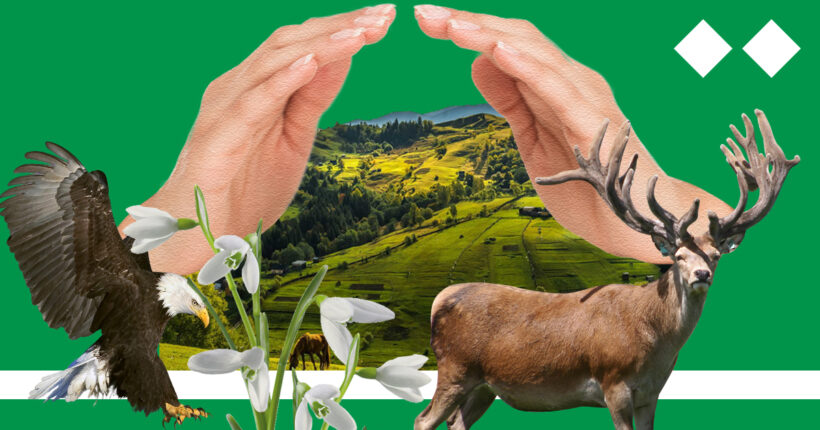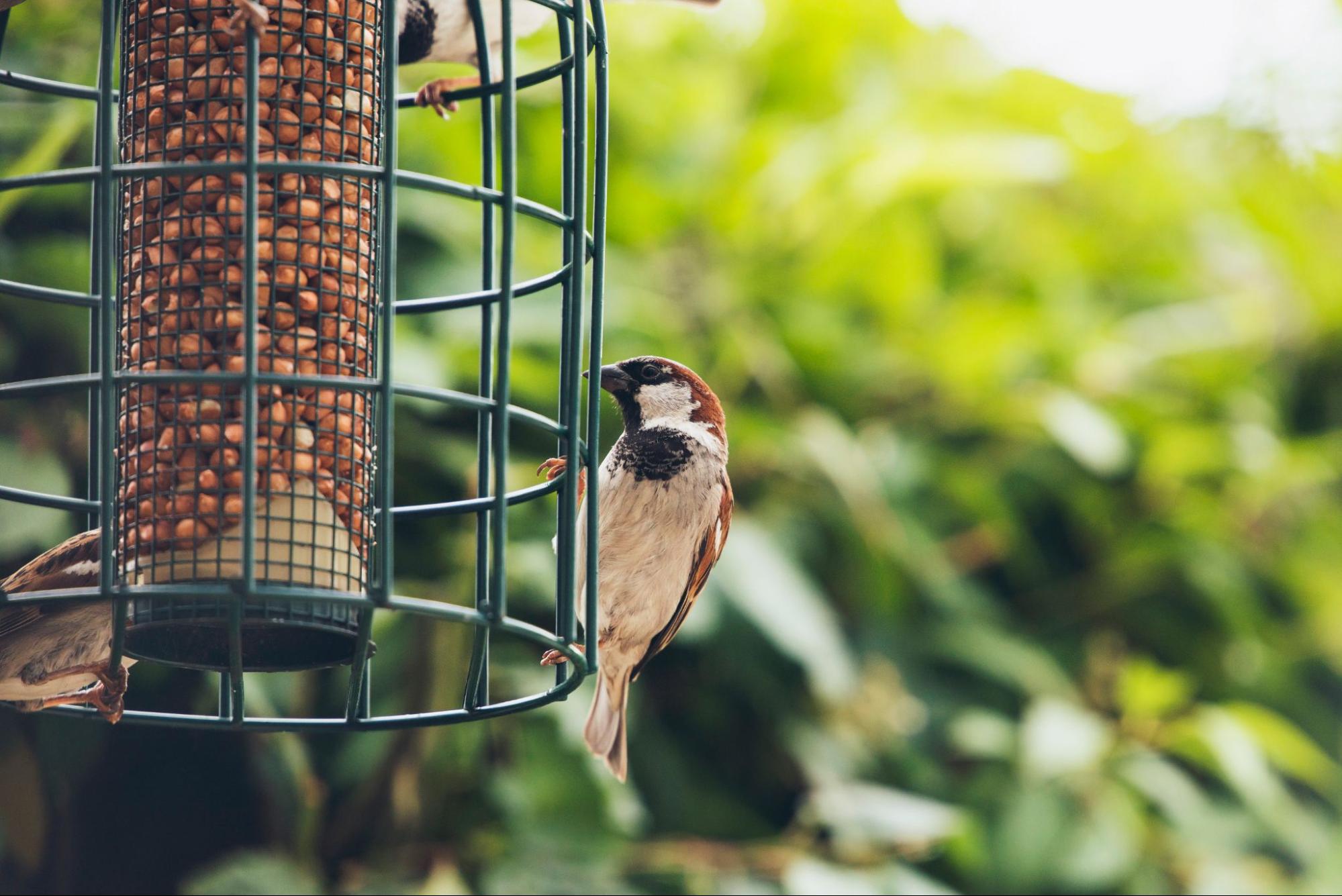
What is the problem?
Every year on March 3, World Wildlife Day is celebrated to draw the world's attention to preserving biodiversity and our responsibility to future generations. The celebration was established in 2013 by the UN General Assembly, and every year, it attracts the attention of people from different parts of the world to the preservation of wildlife.
This year's theme is "Partnership for Wildlife Conservation" — from the intergovernmental to the local scale. Within this theme, the day focuses on two sub-themes:
- Marine Life and Oceans: With about 70% of our planet covered in water, the impact of marine conservation is extremely important.
- Business and Finance: Conservation efforts worldwide need to be funded, and this work must be done in collaboration with businesses that have historically been seen as exploitative. If we want to stop the process of biodiversity loss, we need to find ways to involve business.
One of the main objectives of World Wildlife Day is to raise awareness and give practical examples of how ordinary people can save nature. Rubyka made an instruction on how to preserve the natural diversity of species.
What is the solution?
Take your smartphone for a walk and become a partner in scientific data resources
Study the regional flora and fauna to learn which species are vulnerable and need protection. The more you learn about local ecosystems, the better you can understand what actions can help preserve them.
For example, with the iNaturalist social media for naturalists, you can identify plants, animals, and birds around you and add data about their whereabouts to scientific data repositories (aggregators) such as the Global Biodiversity Information Facility.
You can take a photo of any plant or animal in its natural environment, and the application will automatically identify the species and international name. Later, this data can be used by researchers to track the migration of species or the distribution of plants.

Become a scientist or ask the public to help with research
Researchers who need help counting insects can ask the public for help. People will be able to participate in research right from home.
In particular, the Great Sunflower project studies bee populations around the world. The initiative asks participants to plant and grow a Lemon Queen sunflower in their backyard or even on the balcony of an apartment building. After the plant blooms, count the number of pollinators landing on the sunflowers in five-minute segments and send the data to the scientists.
You can register to participate in the project here. Basic instructions can be found in the video and the quick guide.
Monitor wildlife with research institutions

Volunteers in this field do not need a professional education to witness changes in natural ecosystems — the citizen science movement is gaining momentum worldwide. Those who want to help go diving and monitor the state of coral reefs, go to the mountains, and hike with reserve workers to monitor changes in the environment and the territory's inhabitants.
For example, in the Pyryatynskyi National Nature Park in the Poltava region, groups of volunteers regularly help to keep track of beavers, owls, and storks, as well as conduct photo and video observations of flora and fauna of the Pyryatyn region as part of the Supii Lake Explore Center project, founded by Yevhenii Dovhalyuk. Volunteers also help with solving environmental problems, such as preventing fires of dry vegetation or accumulating unauthorized landfills of household waste in the territories of the nature reserve fund.
So if you live in the Poltava region, you can join this project or do the same in other areas because researchers always need additional "hands and eyes."
Cooperate with local organizations for nature protection, help preserve green spaces
The more greenery in your area, the more space wildlife has to live. Creating an environment that's good for the planet and wildlife can start in your backyard and community. Plant species of trees, shrubs, and plants native to your region, especially those that flower and provide food sources for wildlife. You can find out which species are disappearing in Ukraine here.
Help support local parks and green spaces. For this, it is unnecessary to deal with organizational issues — many nature protection groups in Ukraine take care of environmental protection. You can join their activities physically by becoming a volunteer or supporting them financially.
Make your office responsible for wildlife conservation

Social responsibility is no longer a fashionable trend but a necessary component of every business. Large companies make efforts to create a comfortable environment not only within the walls of their own offices but also outside them. An environmentally friendly office can positively impact the health of employees and the environment. Here are some tips to make your office eco-friendlier:
- Use energy-saving equipment and smart technologies. Install LED lamps, which consume less electricity and have a longer service life. You can also install thermal motion sensors for light and thermostats for automatic temperature control.
- Reduce paper consumption. Use email and cloud storage instead of paper letters. If there is no way without printing, buy recycled paper.
- Use ecological products. Switch to eco-friendly products for everyday use, such as biodegradable cups, plates, and cutlery. It is even better to use ordinary dishes and a dishwasher. Use cleaning products that have a lower impact on the environment.
- Buy plants for the office. Consider installing a vertical garden or other landscaping that can clean and humidify the air in your office.
- Use ecological products for bathrooms. Install energy-saving faucets and hand dryers that will reduce the use of paper towels.
Establish new consumer habits
You can reduce your environmental impact by developing simple consumption habits such as using energy and water efficiently at home, reducing plastic use and sorting, and supporting local produce to reduce the strain on logistics systems. Buying products from local farmers will help reduce transportation use for food delivery and carbon emissions.
If you have your own land, remember that using chemicals to control insects and weeds can harm wildlife. Consider using natural plant protection products in your own backyard, such as planting insect-repelling plants or using environmentally friendly organic fertilizers.
Create conditions for the life of wild birds

Install bird feeders and nesting areas. You can do this on windows, balconies, or in parks, but remember that you can only feed the birds with products that are harmless to them: the food leftovers that you eat yourself are not suitable for this, but grains and seeds will be a great addition to their diet: pigeons, sparrows or other birds common for cities like wheat, rye, oats, sunflower seeds and corn. You can buy them at a regular grain store.
Clean up the trash
Do not litter forests, beaches, or other outdoor recreation areas. Pick up the trash you find and tell others to do the same.
Spring has already begun, and this is the best time to clean up in the surrounding areas, parks, and near water bodies. Such simple actions will prevent the accumulation of plastic, cigarette butts, and other non-recyclable waste from entering natural ecosystems.
Even more helpful solutions!
To protect wildlife in your region, use Rubryka's Eco-solutions Encyclopedia. We have collected instructions and recommendations for ecological solutions to various problems — you can find them on the website or using the convenient Telegram chatbot. Just choose a category that interests you and start improving the environment today.
Newsletter
Digest of the most interesting news: just about the main thing







